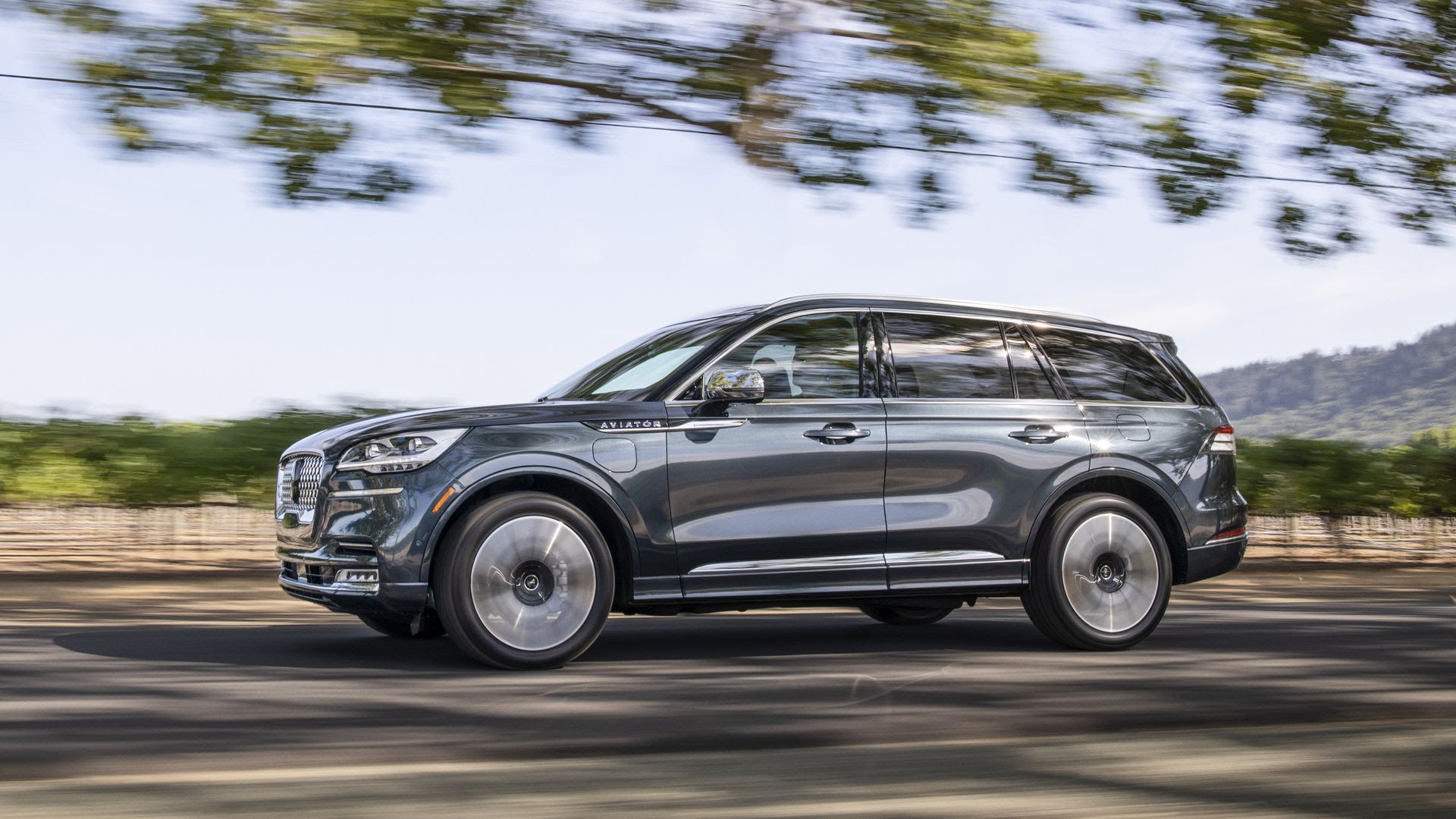Hybrid cars try to shed tree-hugger image
Add Axios as your preferred source to
see more of our stories on Google.

Lincoln Aviator Grand Touring is a plug-in hybrid. Photo: Lincoln
Carmakers are going to great lengths to reposition their gas-electric hybrid models as sporty, premium or even high-performance — anything but the responsible choice for tree-huggers.
The big picture: With stricter fuel economy standards looming, and zero-emission electric cars still too pricey for most consumers, automakers need to fill the compliance gap by selling a lot more hybrids.
What's happening: To drum up excitement, carmakers are gussying up their hybrids, or adding them to their most popular SUV models, while hiding the fuel efficient hybrid powertrain behind other, more appealing selling points like sporty performance, all-wheel drive or leather upholstery.
- Ford's 2020 Escape SE Sport, at $29,450, comes with a popular blacked-out appearance package. Less obvious is the hybrid powertrain, which is standard. Ford's top-of-the-line Escape Titanium is also now a hybrid, though buyers are likely to notice its premium technology features first. (An available plug-in hybrid is coming later.)
- Honda is adding a hybrid powertrain to its best-selling U.S. model, the all-wheel-drive CR-V crossover, and selling it as the top-of-the-line choice with features like an exclusive push-button gear selector.
- Mercedes-Benz's new AMG high-performance models feature "EQ-Boost" — an auxiliary 48-volt power system that turns the powertrain into a mild hybrid. The emphasis is on acceleration.
- The Lincoln Aviator Grand Touring edition, which I'm driving this week, doesn't even promote the fact that it's a plug-in hybrid. It's all about "effortless acceleration," and making the car feel like it's gliding, brand manager Brad Jaeger tells Axios.
- By emphasizing the performance advantages of its freshened RAV4 hybrid, Toyota says sales are up 150% over the previous generation. A plug-in hybrid variant will be introduced next month.
- It's also expanding the warranty on its hybrid models and — borrowing a page from EVs — emphasizing the 400- or 500-mile driving range between fill-ups.
Yes, but: It's still not enough. Today 9% of Toyota’s U.S. sales are hybrids, but that's nowhere near the company’s goal of 25% by 2025.
- Toyota, whose Prius is synonymous with hybrids, has a problem — it's called Tesla.
- The Silicon Valley carmaker proved that long-range electric cars can be exciting and desirable, and suddenly the lowly hybrid didn't seem so innovative any more.
- "A hybrid is passe, from a social buzz standpoint," says John Loehr, managing director at consulting firm AlixPartners.
- "We can't sell them on emissions and fuel economy," says Doug Murtha, Toyota's group vice president of corporate strategy and planning, especially when gas prices remain relatively low. "We need a broader appeal."
Hybrids accounted for 2.2% of U.S. auto sales in 2018, and an expected 3.3% in 2019, according to LMC Automotive, which sees a near doubling of hybrid sales, to about 1.2 million vehicles, in the next two years.
What to watch: Until battery costs come down, making EVs affordable, hybrids will continue to play an important role in automakers' regulatory compliance.
